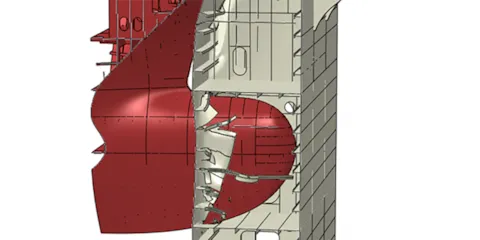DNV-RP-C208: Determination of structural capacity by non-linear finite element analysis methods
A 3-day training course on DNV-RP-C208, a recommended practice established to determine structural capacity by non-linear finite element analysis methods
Description of recommended practice DNV-RP-C208
DNV-RP-C208 is intended to give guidance on how to establish structural resistance by use of non-linear finite element (FE) methods. The recommended practice (RP) deals with determining the characteristic resistance of a structure or part of a structure in a way that fulfils the requirements to ultimate strength in DNV standards. The objective of the RP is that analyses carried out according to the recommendations given in the RP will lead to a structure that meets the requirements to the minimum safety margin in the governing structural standard.
Course description
The course offers an introduction to the philosophy of DNV-RP-C208, fundamental principles of FE-analyses, and general requirements to FE-analyses. Central topics in the RP on how to determine structural capacity for different failure modes with FE-analyses are lectured through a combination of theory and examples.
Course objective
After completing the training course, you will know the background, objective and content of DNV-RP-C208. The participants will be introduced to methods for how to determine structural capacity by non-linear FE-analysis methods according to the RP.
Course content
- Non-linear analysis methods in offshore design codes
- Objective and content of DNV-RP-C208
- Selection of software and analysis methods (explicit and implicit solvers)
- Material modelling (material models, proposed material curves in the RP)
- Geometry modelling, element types, contact modelling
- Application of loads and safety factors
- How to analyze buckling failure
- How to analyze tensile failure
- How to determine weld capacity
- How to assess low cycle fatigue
- Code requirements to structures exposed to accidental loads
- How to perform explicit analyses, i.e. modelling and selection of control parameters
- Important aspects of impact analyses, e.g. collision and dropped objects
- Important aspects of explosion analyses
- Shell buckling according to principles in EN 1993-1-6
- Guided tour in DNV’s Materials Laboratory (optional).
Target group
Engineers determining structural capacity by performing non-linear FE-analyses. Engineers who review reports documenting capacity using non-linear FE-analyses.
Pre-requisite
None, but familiarization with DNV-RP-C208 and FE-analysis in general is recommended.
Location and time schedule
The course is held at DNV's head office at Høvik (Oslo) and has a duration of three days. A guided tour in DNV's Materials Laboratory is offered at the end of day 2. See the time schedule below.
We also offer the course to be held at clients' premises all over the world, where the course content and timetable can be adapted to customer needs.
Time schedule for the 3-day course:
- Day 1: 12:00 - 16:00
- Day 2: 09:00 - 15:30 (including lunch and guided lab tour 14:30 - 15:30)
- Day 3: 09:00 - 13:30 (including lunch).
